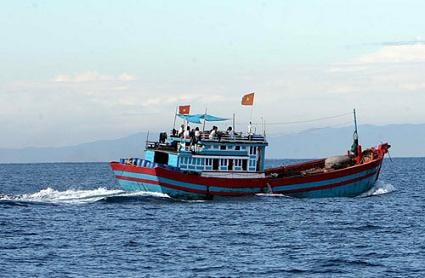Prospects for a Code of Conduct in the South China Sea
There needs to be a specific provision for resolving the issue of arresting fishing vessels and fishermen of countries with sovereignty disputes in the East Sea.
That is one of the proposals of famous expert Mark J. Valencia at the Woodrow Wilson Center (USA) for the Code of Conduct in the East Sea (COC). As expected, ASEAN and China will begin negotiations on this code in January 2012. Mr. Valencia's proposals were made in a commentary in the Thai newspaper The Nation. In it, he assessed that there are many factors that will contribute to the success of this negotiation process such as ASEAN is focusing on building a security model for the region, solidarity within the bloc and the direction of development of ASEAN - China relations. Previously, BusinessWorld newspaper quoted Philippine Foreign Minister Albert del Rosario as saying: "The draft COC will be released before July 2012".

The COC needs to reaffirm peaceful activities at sea.
Illustration: Dao Ngoc Thach
The Nation quoted Mr. Valencia as emphasizing: “To ensure comprehensiveness, the COC should cover all activities from exploration, exploitation, scientific research to military activities. The COC should reaffirm the parties’ commitment to comply with international principles and laws as well as the principle of treating each other on the basis of equality and respect.”
Many experts also agree that the COC must not have any point that would prejudice the sovereign rights, jurisdiction over the territory, exclusive economic zone, continental shelf or the rights and responsibilities of any party under the UN Convention on the Law of the Sea. The code should also reaffirm that all activities at sea are for peaceful purposes only, without the use of force or intimidation to dispute, as well as ensuring freedom of navigation in accordance with international law. In addition, the parties should commit to avoid actions that could complicate the situation, and at the same time inform each other of upcoming activities, including military exercises in “problematic” sea areas.
For the COC to be effective, according to expert Valencia, the parties should sign an accompanying agreement, in which they commit to comply with the code of conduct, develop a mechanism to detect violations, and encourage external partners to recognize and join the COC.
According to Thanh Nien






